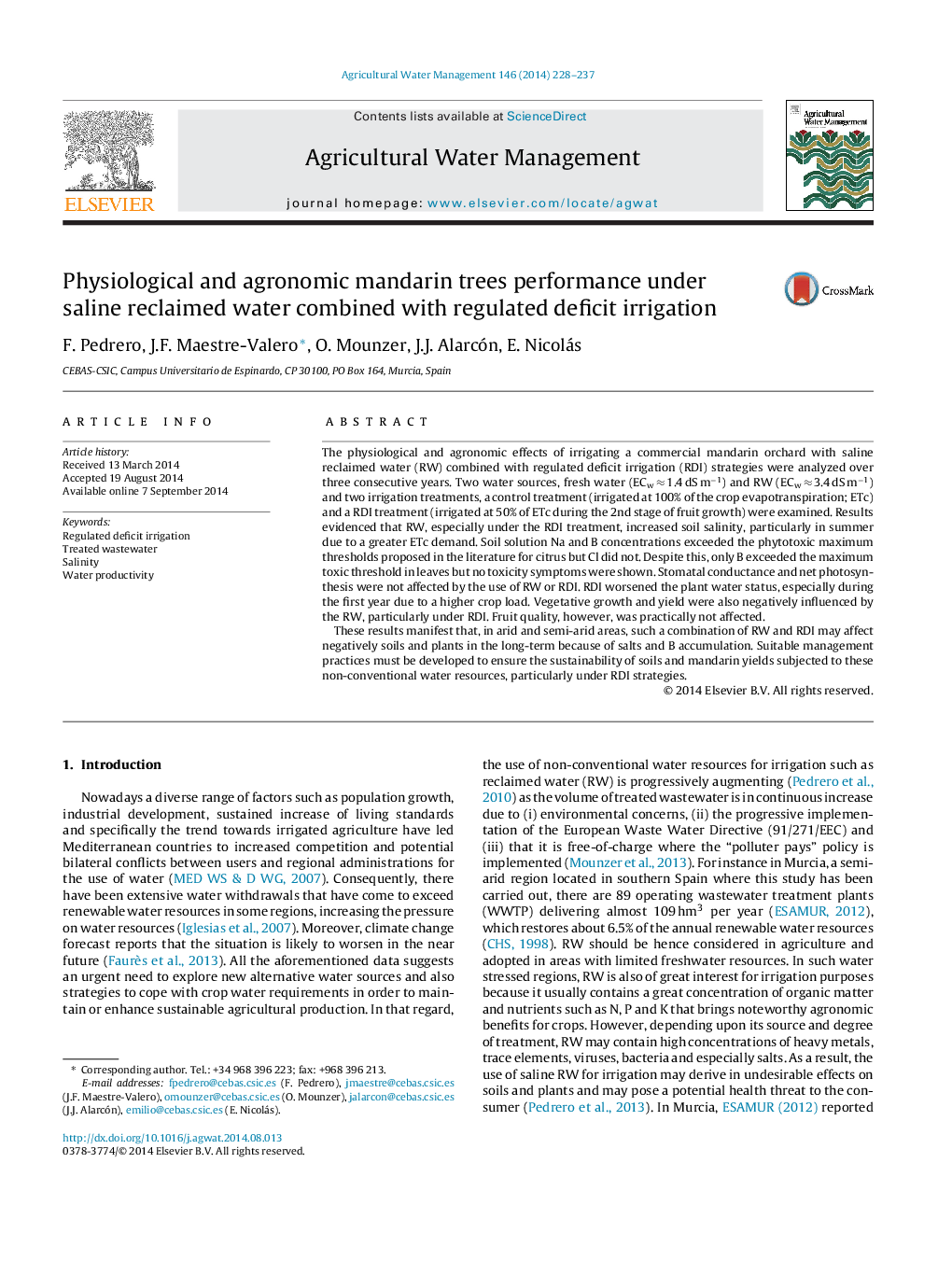| کد مقاله | کد نشریه | سال انتشار | مقاله انگلیسی | نسخه تمام متن |
|---|---|---|---|---|
| 6363961 | 1622933 | 2014 | 10 صفحه PDF | دانلود رایگان |
- Regulated deficit irrigation with reclaimed water increased soil salinity.
- Regulated deficit irrigation with reclaimed water reduce yield.
- Regulated deficit irrigation with reclaimed water acts as a natural fruit thinning.
- Reclaimed water and regulated deficit irrigation do not affect fruit quality.
The physiological and agronomic effects of irrigating a commercial mandarin orchard with saline reclaimed water (RW) combined with regulated deficit irrigation (RDI) strategies were analyzed over three consecutive years. Two water sources, fresh water (ECw â 1.4 dS mâ1) and RW (ECw â 3.4 dS mâ1) and two irrigation treatments, a control treatment (irrigated at 100% of the crop evapotranspiration; ETc) and a RDI treatment (irrigated at 50% of ETc during the 2nd stage of fruit growth) were examined. Results evidenced that RW, especially under the RDI treatment, increased soil salinity, particularly in summer due to a greater ETc demand. Soil solution Na and B concentrations exceeded the phytotoxic maximum thresholds proposed in the literature for citrus but Cl did not. Despite this, only B exceeded the maximum toxic threshold in leaves but no toxicity symptoms were shown. Stomatal conductance and net photosynthesis were not affected by the use of RW or RDI. RDI worsened the plant water status, especially during the first year due to a higher crop load. Vegetative growth and yield were also negatively influenced by the RW, particularly under RDI. Fruit quality, however, was practically not affected.These results manifest that, in arid and semi-arid areas, such a combination of RW and RDI may affect negatively soils and plants in the long-term because of salts and B accumulation. Suitable management practices must be developed to ensure the sustainability of soils and mandarin yields subjected to these non-conventional water resources, particularly under RDI strategies.
Journal: Agricultural Water Management - Volume 146, December 2014, Pages 228-237
